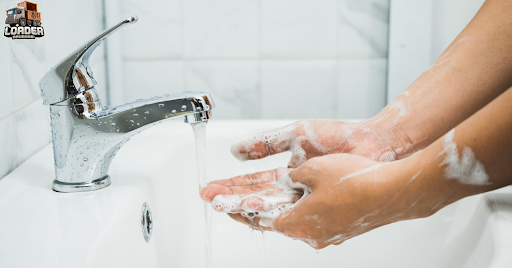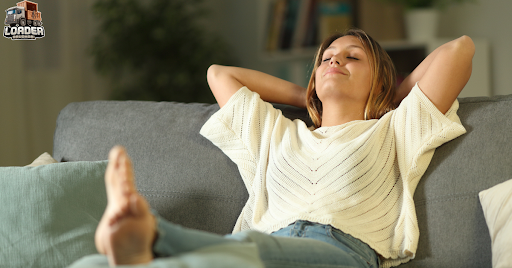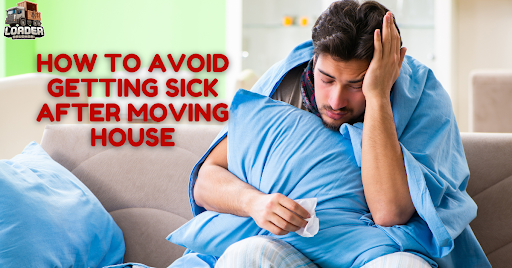Moving to a new house is an exciting milestone, but it can also be physically and mentally taxing. With all the packing, cleaning, and transitioning involved, it’s not uncommon to experience fatigue or even fall ill during or after the process. The good news is that you can avoid getting sick by following practical tips that prioritize your health and well-being. Here’s a detailed guide to help you stay healthy throughout your move.
Boost Your Immune System Before and After Moving
Your immune system plays a vital role in keeping you healthy, especially when you’re exposed to new environments and germs. Preparing your body to handle the stress and changes of moving is the first step toward staying well.
Start by maintaining a balanced diet rich in vitamins, minerals, and nutrients. Incorporate fresh fruits, vegetables, and whole grains into your meals to provide your body with the energy it needs. Don’t forget to drink plenty of water to stay hydrated throughout the day.
Adequate sleep is equally important. Lack of rest can weaken your immune system, making you more susceptible to illnesses. Aim for 7–8 hours of quality sleep per night. Additionally, consider taking multivitamins or supplements to fill any nutritional gaps, especially if your diet has been disrupted by the move.
Clean and Sanitize Your New Home Thoroughly
Before you start unpacking boxes, take the time to thoroughly clean and disinfect your new home. Even if it looks spotless, it’s better to be safe than sorry. Germs, allergens, and bacteria could be lurking on surfaces, particularly in high-touch areas.
Focus on cleaning door handles, light switches, countertops, and bathroom fixtures with a strong disinfectant. For floors and carpets, use a vacuum and mop to remove dust and dirt. If possible, steam-clean carpets to eliminate deeply embedded germs. This initial deep cleaning will create a healthier environment for you and your family.
Practice Proper Hygiene During the Move

Moving involves handling dusty items, old furniture, and boxes, which can expose you to allergens and germs. Maintaining good hygiene is crucial to prevent illnesses.
Wash your hands frequently with soap and water, especially before eating or drinking. When soap isn’t available, use a hand sanitizer with at least 60% alcohol. Avoid touching your face—particularly your eyes, nose, and mouth—while handling boxes or unpacking. These simple practices can significantly reduce the risk of infection.
Ensure Good Ventilation in Your New Home
Good indoor air quality is essential for your health, especially if your new house hasn’t been occupied recently. Stale air, dust, or mold can cause respiratory issues or aggravate allergies.
Open windows and doors to allow fresh air circulation. If the weather permits, leave them open for a few hours each day to reduce indoor pollutants. Consider investing in an air purifier to remove dust, pollen, and other allergens from the air. Regularly replace air filters in your HVAC system to maintain clean air.
Wear Protective Gear When Necessary
Certain tasks during the moving process—like cleaning, unpacking, or handling items from storage—may expose you to dust, mold, or harmful substances.
Wear gloves and a mask when dealing with these items to protect yourself from allergens and irritants. Encourage professional movers or helpers to wear shoe covers to prevent tracking dirt and germs into your home. Protective gear not only keeps you safe but also minimizes the amount of cleanup you’ll need to do later.
Avoid Injuries and Keep Hands Protected
Cuts, scrapes, and bruises are common during a move, especially when handling heavy or sharp objects. Protecting your hands and body is essential for staying injury-free.
Always wear sturdy gloves to shield your hands from rough edges, cardboard cuts, or splinters. Keep a first-aid kit handy with antiseptic, bandages, and pain relievers for quick treatment of minor injuries. Be mindful of proper lifting techniques to avoid back strain or muscle pain.
Minimize Stress and Prioritize Mental Health
Moving isn’t just physically demanding—it can also take a toll on your mental well-being. Stress and anxiety are common, but there are ways to manage them effectively.
Take breaks during the moving process to relax and recharge. Simple activities like deep breathing, light stretching, or listening to music can help reduce stress. Stay connected with friends and family for emotional support. Encourage your loved ones to explore the new neighborhood with you, helping everyone adjust to the change more comfortably.
Inspect and Maintain a Healthy Home Environment
Your new home could have hidden health hazards, such as mold, radon, or pests. Addressing these issues early will ensure a safer living environment.
Hire a licensed professional to inspect the property for potential risks, including water damage, mold, and asbestos. Check for signs of pest infestations in attics, basements, or cupboards. If needed, use a free radon test kit from your local government to check for harmful gas exposure.
Plan a Post-Move Rest Period

Once the move is complete, resist the urge to dive straight into unpacking everything at once. Allow your body and mind time to recover from the physical and mental strain of moving.
Set aside a day or two to relax, hydrate, and regain your energy. Monitor your health during this period—if you notice symptoms like fatigue, fever, or sinus congestion, consult a doctor promptly. Taking care of yourself post-move is just as important as the move itself.
Stay Prepared with a Moving Day Health Kit
Having a health kit on hand can make a significant difference during the chaos of moving day. Include essentials like hand sanitizers, disinfectant wipes, gloves, and reusable masks. Pack snacks and water to maintain your energy levels. Don’t forget to include basic first-aid supplies, such as bandages, antiseptic wipes, and pain relievers. Having these items readily available ensures you’re prepared for any minor health issues that arise.
Conclusion
Staying healthy during and after a move doesn’t have to be complicated. By prioritizing your immune system, practicing proper hygiene, and maintaining a clean and safe environment, you can reduce the risk of illness and make your transition to a new home a smooth one. Taking time to rest and recharge after the move is just as crucial, ensuring you’re ready to enjoy your fresh start in good health.
Frequently Asked Questions (FAQs)
- Why do people get sick after moving house?
Stress, exposure to new allergens, and fatigue can weaken your immune system, increasing the risk of illness. - How can I prevent sinus infections during a move?
Keep the air clean by opening windows, replacing air filters, and using an air purifier. Take allergy medications if needed. - What should I include in a moving day health kit?
Pack hand sanitizers, disinfectant wipes, gloves, masks, snacks, water, and a first-aid kit. - How can I minimize stress during a move?
Take breaks, stay organized, and rely on support from friends, family, or professional movers. - Should I clean my new home before unpacking?
Yes, deep cleaning your home before unpacking helps remove germs, allergens, and dirt, creating a healthier environment.

